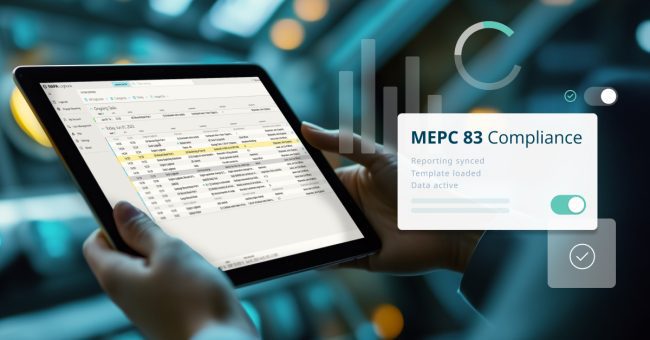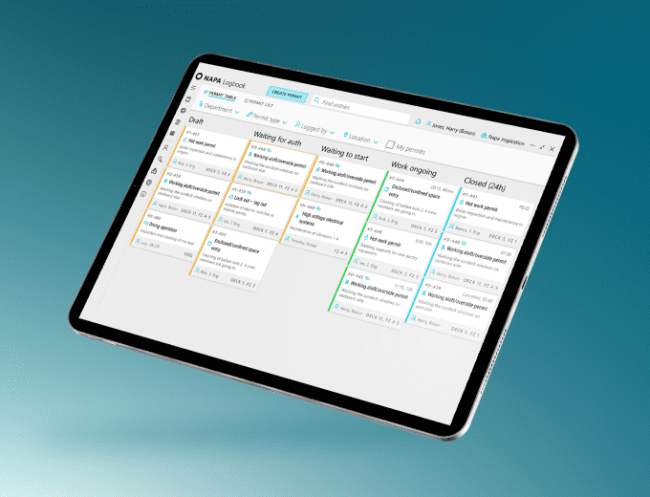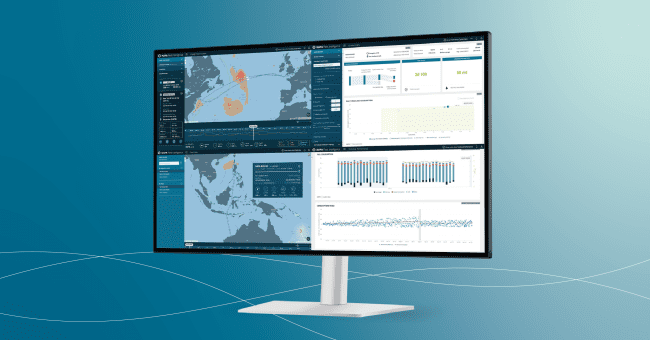Ship logbook – one component in maritime big data
by Jussi Siltanen, NAPA Safety Solutions

Despite the onset of digitalisation, one of the technologies at the heart of shipping has changed little for centuries – with the human factor still playing a major role that of the ship’s logbooks. With paper logbooks, operational recording work is done manually and data is stored for a regulated period of time. Over time, maritime regulators have become more demanding about what needs to be recorded, and therefore the amount and detail of logbook entries has grown considerably. This fulfills the main purpose of the logbook, which historically, has been largely limited to reviewing past events.
The introduction of electronic logbooks took this activity from being simply a matter of data recording and introduced a new era of data management. With an appropriate software tool, data entries can be easily and clearly recorded and timestamped in different types of logbooks (deck, engine, radio, garbage, etc.) required by flag states and commercial requirements. Additionally, as an electronic logbook can connect to other onboard systems through the ship’s data network, an increasing amount of regular entries are done automatically, and only require confirmation from the ship’s master. Later, the data can be searched, reported, or shared with other systems for further data analysis.
With the use of electronic logbooks, shipping companies are first and foremost looking to ensure compliance with the rules of logbook keeping in a way that’s effective and accurate. It can also help to manage the recording of a series of tasks (checklists) or point out on going longer tasks. Shipowners have also realized that logbook data is useful not just for investigating single events, but it can also contribute to fleet-wide monitoring of onboard activities and proactive improvements of processes.
Data In, Analysis Out
It’s a common misconception that the ship logbook simply centralizes data that are available through other systems. It certainly does an excellent job fulfilling the logbook’s original purpose of recording essential ship operation data. But when it’s combined with other data sources, it becomes a database that can provide the foundation of vital operational analyses and predictions.
Shipowners are certainly seeing the value of data their vessels are producing. But in order for this data to become productive, it should be associated with other sources of shipping performance-monitoring data. Services such as NAPA Fleet Intelligence combine publicly available data with algorithms and calculations developed by expert analysts, and can produce even larger value if combined with logbook data from the vessels.
What’s the future of ship logbooks?
Regulators are putting much more pressure on ship owners to record information, such as the impact of their ship on the maritime environment. Any failures in these reports will potentially lead to severe penalties on shipping companies. Yet there are still obstacles in using the logbook in electronic format. Some progress was recently achieved as the IMO Sub-Committee on Pollution Prevention Response (PPR) at its 5th session finalized a guideline for electronic record books (ERB) under MARPOL. With this new guideline and the related amendments to the MARPOL Convention, which will enter into force by September 2020, we are definitely a step closer to completing the transition from paper logbooks to electronic ones.
In my previous blog, I pointed out that autonomy in operations is progressively coming to ships, as more control and management is conducted from ashore or by machines. Whether fully or partially autonomous, ship electronic logbooks can already record all operations; however, regulation demands that the shipmaster signs these record entries. As is ever the case, however, while progress has been made several new questions then arise. Will the master have to be onboard? On the other hand, can the shipmaster be a machine? Probably not – at least not yet.
This blog was originally published in LinkedIn on March 5th, 2018


